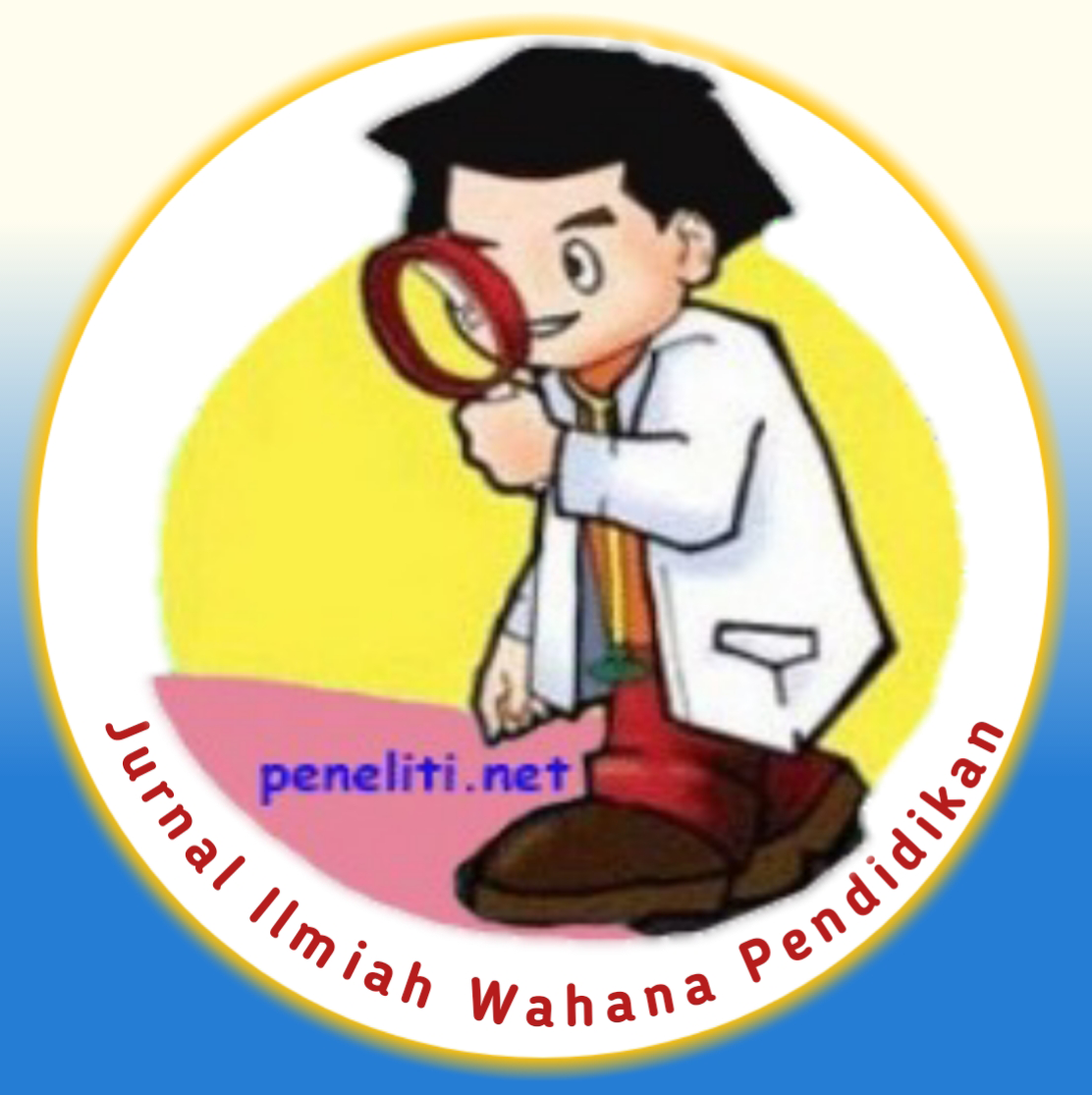Peran Pendidikan Jasmani untuk Mewujudkan Tujuan Pendidikan Nasional
Abstract
A regulation in Indonesia the national goal of education is to develop the ability and form the character and civilization of a dignified nation in order to educate the nation's life. The purpose of this article is to examine the role of physical education in realizing national education. The method in this research uses a qualitative approach to the type of literature study. This study seeks to explore document studies on the study of physical education in general and then relate it to the goals of national education. In the theoretical study the elements of physical education play a role in realizing the national goals of education. Because physical education programs and objectives essentially shape human character to be good through the medium of motion. Learners can grow and develop well physically, psychomotor, cognitive, and in attitude as a result of the contribution of physical education programs in schools. So physical education should not be ignored within the scope of the education unit, and physical education needs to be considered in its implementation in order to achieve the expected goals. The conclusion obtained is that the role of physical education is very important to form healthy human beings, have a noble mind, and have a good mindset, so that they can contribute to realizing the goals of national education that form superior human resources in the future.
References
Alfermann, D. (1999). Psychology for Physical Educators. Human Kinetics.
Bucher, C. A. (1983). Foundations of Phisical Education & Sport. The C.V. Mosby Company.
Bucher, C. A., & Koenig, C. R. (1983). Methods and Materials for Secondary School Physical Education. The C.V. Mosby Company.
Bucher, C. A., & Thaxton, N. A. (1981). Physical education and sport: Change and Challenge. The C.V. Mosby Company.
Bucher, C. A., & Wuest, D. A. (2009). Physical Education, Exercise Science And Sport. McGraw-Hill Companies Inc.
Buck, M. M., Jable, J. T., & Floyd, P. A. (2004). Introduction to Career in Health, Physical Education, and Sport. Thomson Learning.
Budiwanto, S. (2017). Metodologi Penelitian dalam Keolahragaan. FIK UM.
Carless, D., & Douglas, K. (2010). Sport and Physical Activity for Mental Health. Blackwell Publishing Ltd.
Chandler, T., Cronin, M., & Vamplew, W. (2002). Sport and Physical Education: The Key Concepts. Taylor & Francis. https://doi.org/10.4324/9780203467145
Creswell, J. W. (2010). Research Design: Pendekatan Kualitatif, Kuantitatif, dan Mixed. PT Pustaka Pelajar.
Department for Education and Skills. (2004). The National Curriculum. HMSO.
Dwiyogo, W. D. (2010). Penelitian Keolahragaan. UM Press.
Green, K. (2008). Understanding Physical Education. SAGE Publications.
Green, Ken, & Hardman, K. (2005). Physical education: Essential issues. Sage.
Grout, H., & Long, G. (2009). Improving Teaching and Learning in Physical Education. McGraw-Hill Education.
Kirk, D., & Tinning, R. (2005). Physical Education, Curriculum and Culture. The Falmer Press. https://doi.org/10.4324/9780203975503
Laker, A. (2001). Developing Personal, Social and Moral Education through Physical Education: A Practical Guide for Teachers. Routledge.
Laker, A. (2003). The Future of Physical Education: Building a New Pedagogy. Routledge.
Lutan, R. (2001). Asas-Asas Pendidikan Jasmani: Pendekatan Pendidikan Gerak di Sekolah Dasar. Depdiknas.
Lynch, T. (2016). The Future of Health, Wellbeing and Physical Education: Optimising Children’s Health through Local and Global Community Partnerships. Palgrave Macmillan.
Martinek, T., & Hellison, D. (2009). Youth Leadership in Sport and Physical Education. Palgrave Macmillan.
Masgumelar, N. K., & Mustafa, P. S. (2021). Pembelajaran Pendidikan Olahraga Berbasis Blended Learning untuk Sekolah Menengah Atas. Jurnal Kejaora (Kesehatan Jasmani Dan Olah Raga), 6(1), 133–144. https://doi.org/https://doi.org/10.36526/kejaora.v6i1.1222
Mustafa, P. S. (2021). Implementation of Behaviorism Theory-based Training Learning Model in Physical Education in Class VII Junior High School Football Game Materials. COMPETITOR: Jurnal Pendidikan Kepelatihan Olahraga, 13(1), 39–60. https://doi.org/https://doi.org/10.26858/cjpko.v13i1.18131
National Association for Sport and Physical Education. (2011). Physical Education is Critical to Educating the Whole Child. Wallingford-Swarthmore School District. https://www.wssd.org/cms/lib/PA01001072/Centricity/Domain/581/NASPE - PE Critical to-Educating-the-Whole-Child-5-19-2011.pdf
Nixon, J. E., & Jewett, A. E. (1980). An Introduction to Physical Education. Saunders College Publishing.
Nurjaya, D. R., & Mulyana, D. (2010). Mengembangkan Perilaku Asosiatif Siswa SD Melalui Penerapan Pendekatan Bermain dalam Konteks Pembelajaran Penjas. Jurnal Pendidikan Jasmani Dan Olahraga, 2(1), 52–61.
Peraturan Menteri Pendidikan Nasional Republik Indonesia Nomor 22 Tahun 2006 tentang Standar Isi untuk Satuan Pendidikan Dasar dan Menengah.
Pestolesi, R. A., & Baker, C. (1990). Introduction to Physical Education A Contemporary Careers Approach. Scott, Foresman and Company.
Prayoga, H. D., Fitrianto, A. T., Habibie, M., & Mustafa, P. S. (2022). Implementasi pembelajaran daring pada mata pelajaran PJOK kelas IX sekolah menengah pertama. Multilateral Jurnal Pendidikan Jasmani Dan Olahraga, 21(1), 1–15. https://doi.org/10.20527/multilateral.v21i1.10684
Riordan, J., & Jones, R. (1999). Sport and Physical Education in China. ISCPES.
Siedentop, D., Hastie, P. A., & Mars, H. van der. (2011). Complete Guide to Sport Education (2nd ed.). Human Kinetics.
Sugiyono. (2015). Metode Penelitian Pendidikan (Kuantitatif, Kualitatif dan R&D). Alphabeta.
Undang-Undang Republik Indonesia Nomor 20 Tahun 2003 tentang Sistem Pendidikan Nasional.
Undang-Undang Republik Indonesia Nomor 36 Tahun 2009 tentang Kesehatan, Pub. L. No. 36.
UNESCO. (2017). Education for Sustainable Development Goals Learning Objectives. United Nations Educational, Scientific, and Cultural Organization.
Whitehead, J., Telfer, H., & Lambert, J. (2013). Values in Youth Sport and Physical Education. Routledge. https://doi.org/10.4324/9780203114155
Winarno, M. E. (2012). Pengembangan Karakter Bangsa melalui Pendidikan Jasmani & Rohani.




